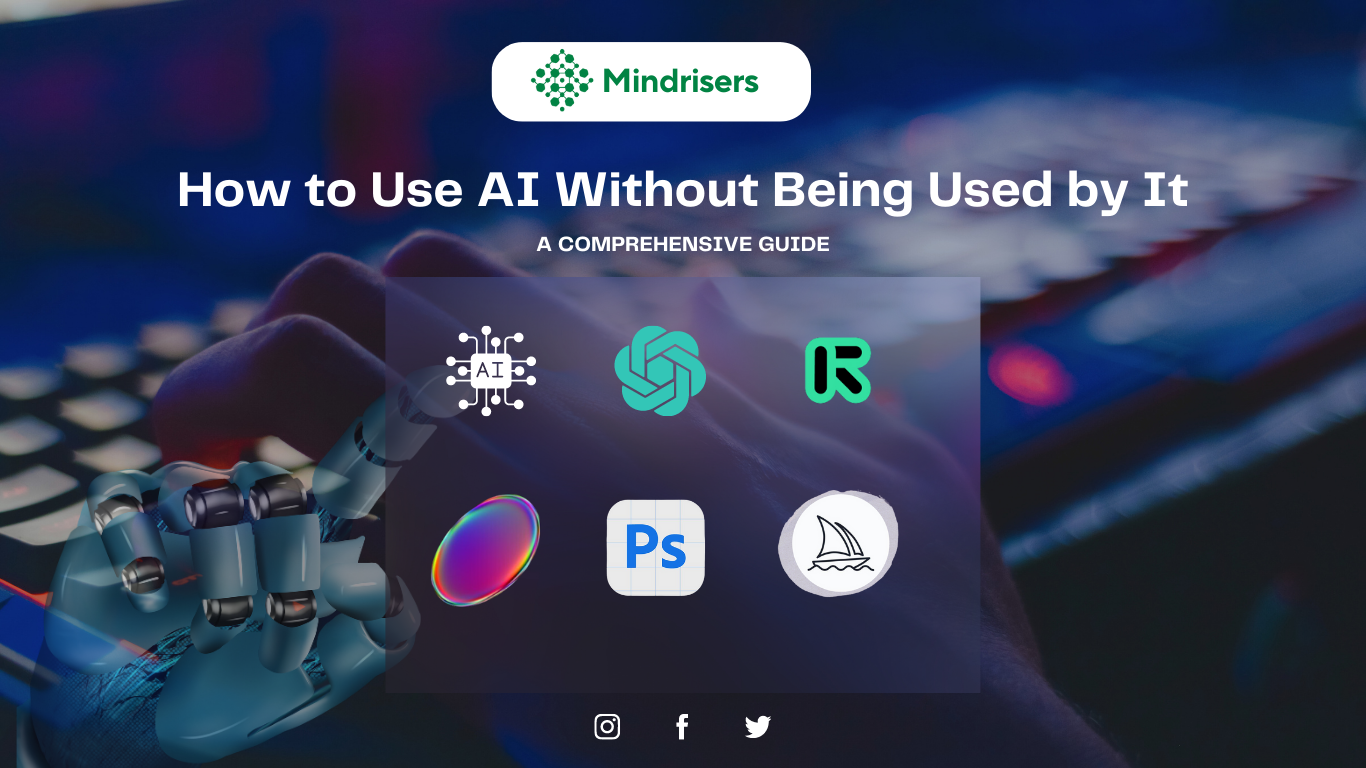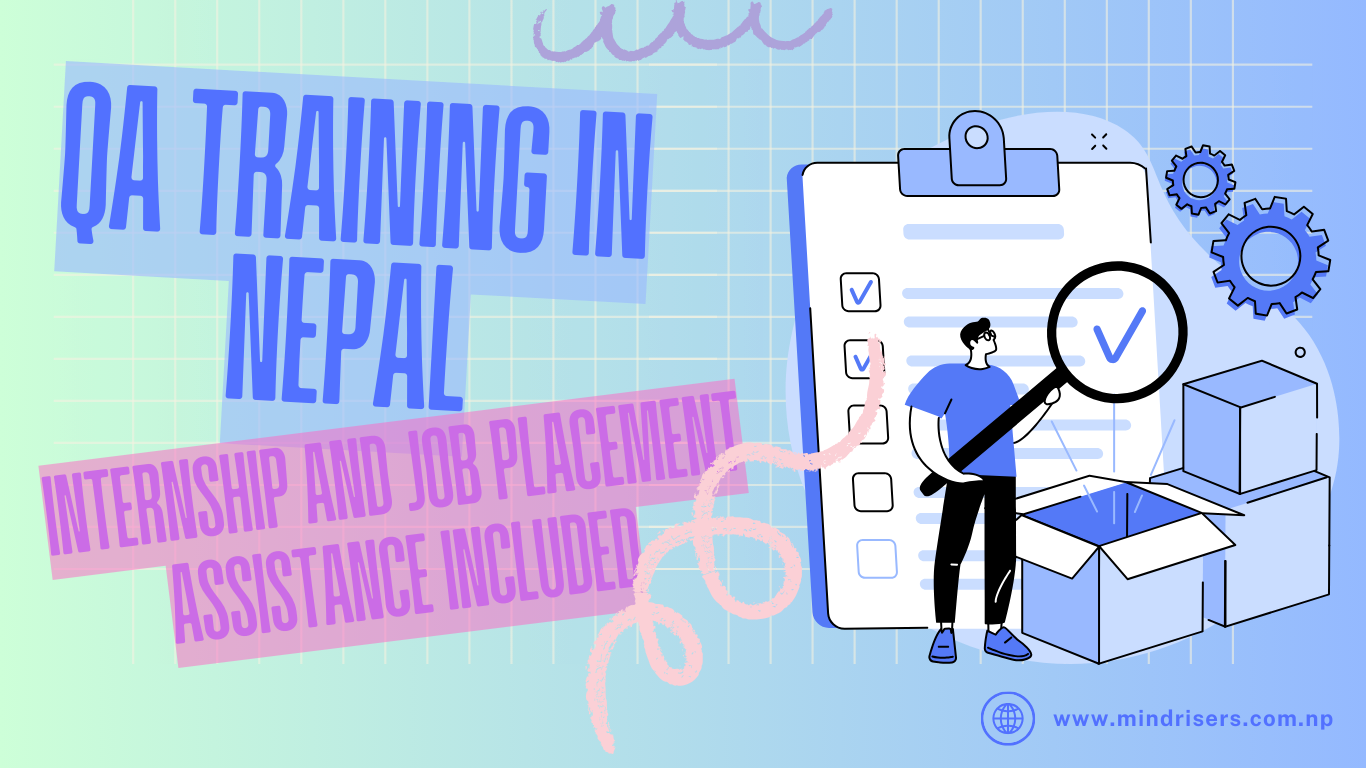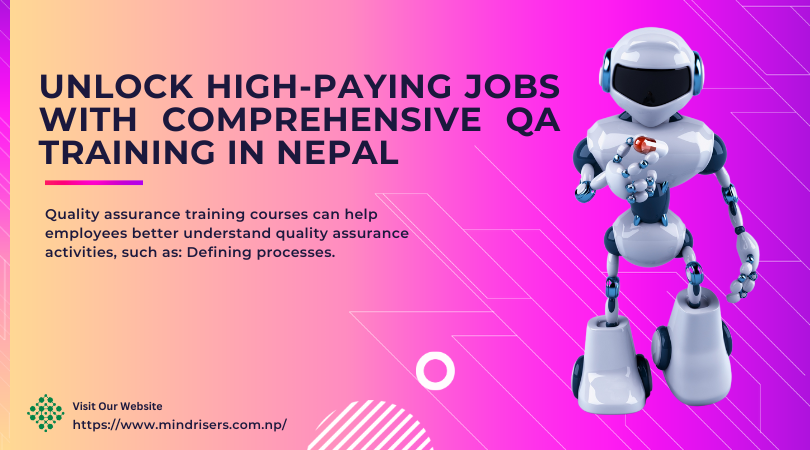
Mindrisers - Author
2023-08-14
Introduction
In today's rapidly advancing technological landscape, artificial intelligence (AI) has emerged as a revolutionary tool with the potential to transform various industries. From business operations to healthcare diagnostics, AI has proven its mettle in enhancing efficiency and accuracy. However, like any powerful tool, AI comes with its own set of challenges and ethical considerations. In this comprehensive guide, we will delve into the intricacies of how to use AI wisely, leveraging its benefits while safeguarding against potential misuse. Here in Mindrisers blog let's explore how you can harness the power of AI and not be used by it.
How to Use AI Without Being Used by It
Artificial Intelligence (AI) has undoubtedly revolutionized the way we interact with technology. But how can you make sure you're using AI to your advantage rather than being manipulated by it? The following are crucial strategies to remember:
Understand the Basics of AI
To use AI effectively, you need to grasp its fundamental concepts. AI refers to the simulation of human intelligence processes by machines, primarily computer systems. A subset of artificial intelligence called machine learning enables systems to learn from data and enhance their performance over time. Natural language processing (NLP) allows computers to understand, interpret, and generate human language. Familiarize yourself with these terms to navigate the AI landscape confidently.
Embrace Ethical AI Practices
As you explore AI's capabilities, it's crucial to prioritize ethics. Ensure that the AI systems you interact with align with ethical guidelines. Companies developing AI technologies should promote transparency, accountability, and fairness. By supporting ethical AI practices, you contribute to a responsible AI ecosystem.
Keep Learning and Adapting
AI technologies are constantly evolving. To stay ahead, commit to lifelong learning. Engage with online courses, workshops, and AI communities to enhance your understanding. By staying informed, you can harness AI's latest advancements while guarding against potential pitfalls.
Question AI's Recommendations
AI often provides recommendations based on patterns in data. However, blindly following these suggestions can lead to unintended consequences. Always critically assess AI recommendations before implementing them. Understand the underlying rationale and consider human expertise before making decisions.
Protect Your Privacy
AI relies on data to function effectively. While utilizing AI-driven applications, safeguard your personal information. Review privacy policies, limit data sharing, and use strong passwords to mitigate the risk of unauthorized access.
Balance Automation and Human Judgment
AI excels at automating repetitive tasks, but human judgment remains invaluable. Determine the right balance between automation and human intervention. For complex decisions, leverage AI insights as a complement to your own analysis.
Leveraging AI for Business Growth
In the realm of business, AI presents unprecedented opportunities for growth and innovation. Let's explore how you can leverage AI to your advantage while minimizing potential risks:
Enhancing Customer Experiences
By offering immediate assistance and tailored recommendations, chatbots and virtual assistants powered by AI can improve consumer relations. By integrating AI-driven customer service, businesses can deliver seamless and efficient experiences.
Optimizing Operations
AI-driven analytics and predictive modeling enable businesses to optimize supply chains, inventory management, and resource allocation. By harnessing AI's predictive capabilities, you can streamline operations and minimize costs.
Data-Driven Decision Making
AI's ability to analyze vast datasets swiftly enables data-driven decision-making. Businesses can gain valuable insights into market trends, customer preferences, and competitive landscapes. Informed decisions driven by AI insights can drive business success.
Mitigating Cybersecurity Risks
AI plays a pivotal role in cybersecurity by detecting anomalies and identifying potential threats. Implement AI-powered security measures to safeguard sensitive business data and protect against cyberattacks.
Common Concerns About AI
While AI offers remarkable potential, it's natural to have concerns about its implications. Let's address some frequently asked questions regarding the responsible use of AI:
FAQ 1: Can AI Replace Human Jobs?
AI automation may change the nature of certain jobs, but it also creates new roles. Rather than complete replacement, AI often augments human capabilities, leading to more efficient and meaningful work.
FAQ 2: How Can I Ensure AI's Recommendations Are Accurate?
The caliber of the data used for AI training determines how accurate it is. Regularly assess and update the data sources to improve the accuracy of AI recommendations.
FAQ 3: Is AI Bias a Concern?
Biases existing in training data may unintentionally be perpetuated by AI algorithms. To address this, developers must actively identify and rectify biases to ensure fair and equitable outcomes.
FAQ 4: What Steps Can I Take to Protect My Privacy When Using AI?
Limit data sharing, opt for platforms with strong privacy controls, and regularly review the permissions granted to AI applications. Additionally, consider using tools like encrypted communication channels to protect sensitive information.
FAQ 5: How Do I Stay Abreast of AI Developments?
Engage in continuous learning through online courses, workshops, and industry conferences. Follow reputable AI experts and publications to stay informed about the latest advancements.
FAQ 6: Can AI Make Decisions Better Than Humans?
AI is excellent at analyzing enormous volumes of data and finding patterns. However, human judgment and contextual understanding remain essential for complex decisions that involve ethical, moral, or subjective considerations.
Conclusion
As AI continues to shape our world, mastering its use is essential for personal and professional success. By understanding the basics, embracing ethical practices, and continually adapting, you can harness AI's potential while safeguarding against misuse. Remember, AI is a tool—a powerful one—but your wisdom and judgment are the guiding forces that ensure its responsible and effective use. Here at Mindrisers, we are very flexible with the ever changing of the modern world. We teach our students how to adapt to the new world and take advantage of it through our extraordinary courses. Join Mindrisers today and take your place in the world.
Recent Post
View All
QA Training in Nepal: Internship and Job Placement Assistance Included
2024-10-29.335 Views
Step into the World of QA: Professional Training in Nepal
2024-10-23.328 Views
Unlock High-Paying Jobs with Comprehensive QA Training in Nepal
2024-10-21.431 Views
QA Courses in Kathmandu: Build Your Testing Expertise
2024-10-21.292 Views
Never miss an Opportunity !
Want to learn TOP 2024 IT Skills ?
We open IT skill classes Monthly in Design, Development, Deployment, Data etc.
Have something to Ask ?
get admission enquiry